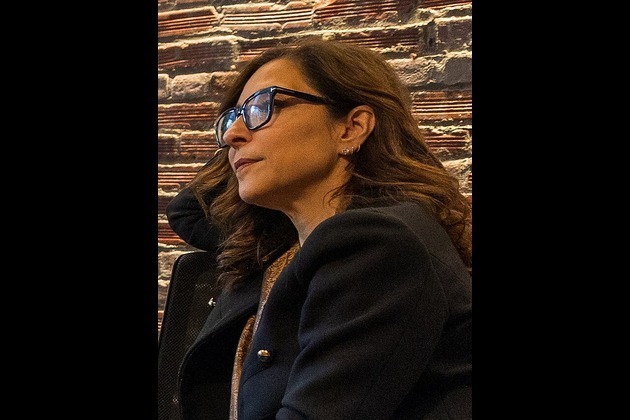African multinationals bring home much more than profits
The Conversation
17 Nov 2019, 12:07 GMT+10

Often when companies take their operations abroad, a practice referred to as internationalisation, the main intention of the owners or managers is to increase corporate earnings. They achieve this by reaching new foreign customers. They may also get closer to sources of raw materials and thus reduce costs.
Companies can also internationalise without having a physical presence overseas or exporting their products abroad. They can internationalise by having their shares traded in overseas stock exchanges. Doing so can enable a company to access new sources of international funding. This can help overcome a lack of relatively cheap capital at home.
Companies can also appoint foreign directors to their boards. This can augment the skills base of a company's board of directors and other senior managers. Foreign directors can also represent those firms overseas and may enhance the firms' international reputation.
Multinational companies have been much studied. However, the focus of these studies has been mostly restricted to subsidiaries of foreign companies operating in emerging economies.
This has left a huge gap. Hardly any research has been done on the impact of multinational companies that are born and bred on African soil. In a recent study, we provide new insights on the impact African multinationals have on their home countries.
Our study
We used a sample size of 80 multinational companies listed on the Nigerian Stock Exchange (NSX) during the period 2011-2015. Coincidentally, the period of study was also preceded by the introduction of the Code of Corporate Governance for Public Companies in Nigeria issued by the Securities and Exchange Commission in 2011.
This allowed us to assess how the sampled companies reconciled the demands of improved corporate governance regulations in Nigeria with the corporate governance demands of overseas jurisdictions where they also have operations.
Our sample comprised companies operating in a wide range of sectors. These included financial services, consumer goods, agriculture, consumer services, health care, natural resources, and information, communications and technology.
Of the 80 companies in our sample, approximately 19% were listed in Nigeria and elsewhere. Most of these cross-listed companies were listed on the London Stock Exchange (LSE) and Euronext Paris exchanges (26.5% each) as well as the NSX. Another 20% were also listed on the Johannesburg Stock Exchange. Others were also listed on the New York Stock Exchange, the Ghana Stock Exchange, the SIX Swiss Exchange, and the Frankfurt Stock Exchange.
The findings
Our study found that African multinational companies had higher standards of corporate governance than other local firms. They served as yardsticks for good corporate governance practices.
Internationalisation also helped African firms to disengage from home country shortcomings. These include corruption, tribalism and elitism. Elitism and tribalism, in this instance, refer to the appointment of directors on the basis of friendship or cronyism. These factors pose serious threats to the running and governance of companies in many African countries, including Nigeria.
These shortcomings, together with a widespread culture of patronage, have been cited as some of the biggest hindrances to Africa's economic development.
Conclusion and implications
There are two important implications of our study for policy makers and stakeholders of companies based in Africa and other emerging economies.
Firstly, African based companies can enhance their reputation globally by listing their shares on overseas stock exchanges or appointing foreign directors onto their boards. Reputation is particularly important when a company seeks to enter foreign markets.
Lastly, multinational companies diffuse international best practices on corporate governance into their home markets. So, internationalisation can assist African companies to lessen the impact of local contextual challenges on their business and corporate governance practices. These include corruption, crony capitalism, and patronage and nepotism in corporate appointments.
Authors: Danson Kimani - Lecturer in Accounting; CAGD coordinator at The Centre for Accountability and Global Development (CAGD), University of Essex | Geofry Areneke - Senior lecturer in Accounting and Finance, Manchester Metropolitan University 
 Share
Share
 Tweet
Tweet
 Share
Share
 Flip
Flip
 Email
Email
Watch latest videos
Subscribe and Follow
Get a daily dose of Northern Ireland News news through our daily email, its complimentary and keeps you fully up to date with world and business news as well.
News RELEASES
Publish news of your business, community or sports group, personnel appointments, major event and more by submitting a news release to Northern Ireland News.
More InformationBusiness
SectionFTC’s rule to ease subscription cancellations struck down by court
WASHINGTON, D.C.: A federal rule designed to make it easier for Americans to cancel subscriptions has been blocked by a U.S. appeals...
Musk’s X loses CEO Linda Yaccarino amid AI backlash, ad woes
BASTROP, Texas: In a surprising turn at Elon Musk's X platform, CEO Linda Yaccarino announced she is stepping down, just months after...
Ex-UK PM Sunak takes advisory role at Goldman Sachs
NEW YORK CITY, New York: Former British prime minister Rishi Sunak will return to Goldman Sachs in an advisory role, the Wall Street...
Gold ETF inflows hit 5-year high as tariffs drive safe-haven bets
LONDON, U.K.: Physically backed gold exchange-traded funds recorded their most significant semi-annual inflow since the first half...
PwC: Copper shortages may disrupt 32 percent of chip output by 2035
AMSTERDAM, Netherlands: Some 32 percent of global semiconductor production could face climate change-related copper supply disruptions...
U.S. stocks recover after Trump-tariffs-induced slump
NEW YORK, New York - U.S. stocks rebounded Tuesday with all the major indices gaining ground. Markets in the UK, Europe and Canada...
International
SectionGaza War sucking life out of an Israeli generation
In the past month alone, 23 Israeli soldiers have been killed in Gaza—three more than the number of remaining living hostages held...
Faulty IT system at heart of UK Post Office scandal, says report
LONDON, U.K.: At least 13 people are believed to have taken their own lives as a result of the U.K.'s Post Office scandal, in which...
Travelers can now keep shoes on at TSA checkpoints
WASHINGTON, D.C.: Travelers at U.S. airports will no longer need to remove their shoes during security screenings, Department of Homeland...
Rubio impersonator used AI to reach officials via Signal: cable
WASHINGTON, D.C.: An elaborate impersonation scheme involving artificial intelligence targeted senior U.S. and foreign officials in...
Warsaw responds to migration pressure with new border controls
SLUBICE, Poland: Poland reinstated border controls with Germany and Lithuania on July 7, following Germany's earlier reintroduction...
Deadly July 4 flash floods renew alarm over NWS staffing shortages
WASHINGTON, D.C.: After months of warnings from former federal officials and weather experts, the deadly flash floods that struck the...













